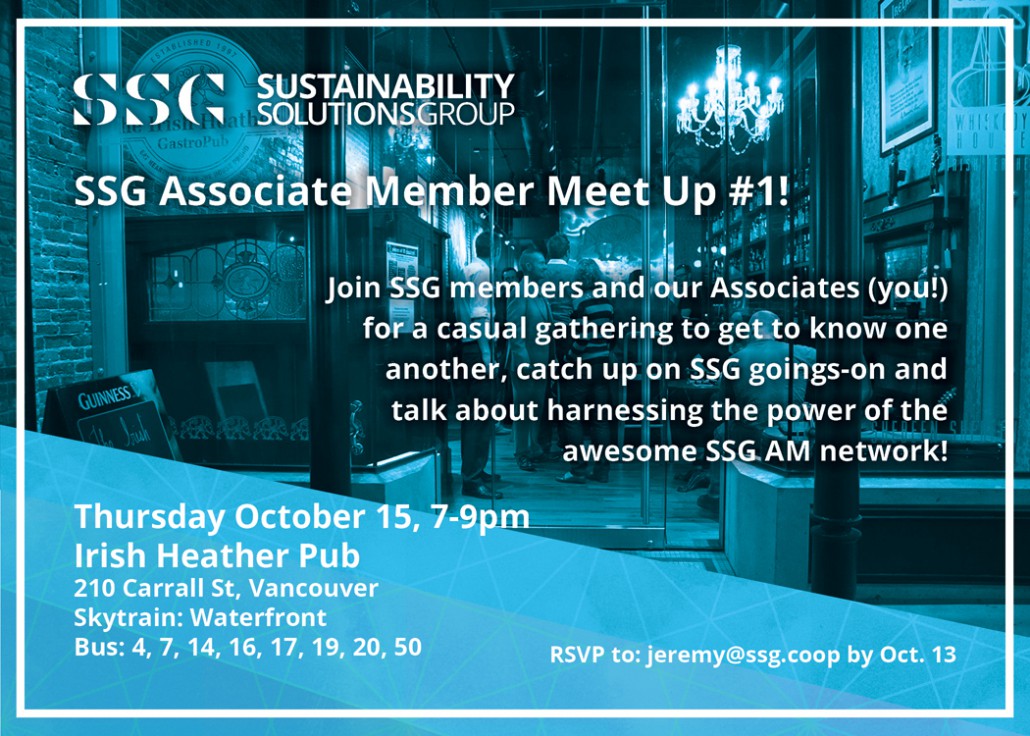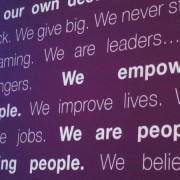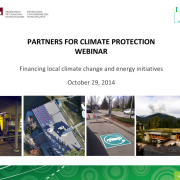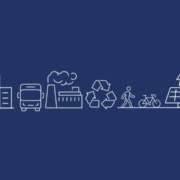SSG October 2015 Newswire
Our monthly newsletter on news and inspiration at the nexus of sustainability
As you may have heard, we are heading to Paris in December for the COP 21 UN Climate Talks. If you will also be there, please get in touch. If you would like to subscribe to our negotiations live feed, click here and you can follow us on @Pathway2Paris.
[Recently completed]
Solutions Agenda
A two year research project launched in 2012 to explore challenges in creating sustainable communities is complete. Undertaken by Royal Roads University’s Canada Research Chair in Sustainable Community Development and SSG, The Solutions Agenda explores eight key issues impacting Canadian communities: food security, multi-functional spaces, energy security, the cooperative movement, rural revitalization, mental health, the future of work, and waste. The project engaged the research team and dozens of leading innovators in virtual e-Dialogues. All participants convened in early 2015 in a peer-to-peer learning exchange to draft the Agenda.
The Agenda concludes that the time is ripe for Canadian communities to become leaders in the implementation of sustainable technologies, infrastructure and building design. However, this leadership is highly dependent on local, provincial and federal governments to stimulate further innovation by advancing bold legislation, congruent and coherent policies, and incentives to share and expedite the uptake of leading-edge sustainability practices. We feel honoured to have been part of this ongoing dialogue. The Solutions Agenda launched this month. There will be a Climate Change e-Dialogue on 30th October 12:00 Pacific Time, exploring three scenarios set by Yuill Herbert from SSG and led by Ann Dale.
Guidebook on the Leadership in Brownfield Renewal Program
SSG co-authored ‘Devising and implementing an effective brownfield strategy‘, the second in a new series developed for FCM’s new Leadership in Brownfield Renewal (LiBRe) Program framework. The guide helps Canadian municipalities devise and implement successful brownfield strategies. It targets two audiences: i) municipalities ready to develop a brownfield strategy, and ii) municipalities with existing brownfield strategies that are re-evaluating or renewing their programs. Part A of this guidebook provides an outline of different types of brownfield strategies and an overview of what your brownfield strategy should
include, while Part B outlines best practices for developing a successful brownfield strategy, including guidance on selecting the right brownfield incentives for your municipality.
As with the first in the series, “Getting started on your brownfield sites: Committing to action, SSG provided research, verification, experiential contributions, coordination of materials and content organization. Do get in touch with Jeremy for more information.
Squamish Learning Lab – Exploring Health Tools for OCP Review
SSG assembled land-use scenarios modelling health outcomes as part of the District of Squamish’s Learning Lab – Exploring Health Tools for Official Community Plan Review Project, funded by BC Healthy Communities. The exercise explored potential impacts of different land-use decisions on community health using SSG’s HealthProof modelling tool. The exploratory version of HealthProof is an excel and map-based model. It uses land-use archetypes (suburban residential, agricultural, industrial, urban mixed-use, etc.) to model current community land-use and develop alternative land-use scenarios to assess potential impacts on individual and community health, without relying on GIS data.
HealthProof evaluates the impact of land-use plans/decisions on health outcomes, while quantifying those impacts on population health and health costs. Watch this space for more applications of this new model.
SSG Sustainability Assessment
With bated breath, we release our 2014 sustainability assessment. For those of who you follow our work closely, you will notice a hiatus from 2011 (https://www.ssg.coop/about/#Walking), due to staff turnover, resources and change in recording our data. Conducting and publishing annual sustainability assessments is a way for us to be transparent about our operations and accountable to our members, associate members, clients, partners and the broader community. Over the past year, SSG has engaged key stakeholders in this process, reviewed the targets set out in our last review in 2011, and confirmed that our policies and practices are still relevant and represent best practice. We have a bit of work to do, with what as a remote organisation has low overheads but at the loss in other areas. Have a read here.
[Research]
What works, and what doesn’t, for engaging people in climate change
A few pieces of research are being carried out that are asking difficult questions about how we are actually going to bridge this gap, and what are the conditions we need to enable this transformation to take place, now we are closer to understanding the size of the gap we face. First, the Pacific Institute for Climate Solutions is digging deep to seek answers as to why conversations around climate change are so tricky to hold, why many citizens are unaware of our climate targets, for example and how to provoke the ‘silent majority.’ These questions and work are a welcome honest look at the gaps from high level policy and governance to actually being about the people and what is holding us all back.
Conducted over four years, this study shares what does work, and what doesn’t; a very valuable piece of research for those of us who work in community engagement!
This falls in correlation with similar work in the UK that Petronella has been involved with, with Professor Paul Hoggett at the Climate Psychology Alliance where they’ve been reflecting on the European Green Capital.
A talk she is coordinating for a group of researchers is looking at the impacts on mental health. Dr.Raoul Goldberg, is a holistic medical doctor with 40 years experience, Hardin Tibbs, the futurist who helped define the concept of Industrial Ecology that led to Circular Economy thinking twenty years later. They are coming together to help cultural pioneers find greater psychological awareness and conceptual fluency around climate change and other environmental challenges. Joining them is Dana Smirin, a change agent whose work in the sustainability field runs from international political advisory appointments to an academic post at UC Berkeley.
And finally, what are the sociocultural conditions that need to be in place for change?
The Centre for Sustainable Energy’s Smart City Collaboration, through their lens of smart energy initiatives are exploring what could be done in the immediate future to develop understanding, remove obstacles to progress, and create the social and cultural conditions across a city for such initiatives to flourish.
[SSG Webinars]
Plan4DE webinar I 22nd October 2015 13:00 EST
‘The relationship between built environment and district energy’ with Mel de Jager from SSG
A key variable in determining the feasibility and cost effectiveness of district energy is heating density – the amount of heating energy demand required over a specific area. Energy density is dependent upon a number of factors including climate, urban structure, building morphology, building use, building systems and occupant behaviour. Planners, when assessing future built environments, face a complex trade-off in that they need to contribute to and plan for decreased energy density at the building scale, while increasing energy density at the neighbourhood or district scale to increase the feasibility of district energy. This webinar will explore some of these factors and their influence on energy density, and highlight strategies for improved planning and urban form to increase the feasibility of district energy. Please register here.
GHGProof webinar I 28th October 13:00 EST
‘The relationship between land use and GHG Emissions: knowledge so far’ with Yuill Herbert from SSG
Yuill Herbert from SSG will be discussing the design functions of the new city-scale energy, finance and emissions model which will be launched in Paris at the COP 21 UN Climate Talks in December.
This webinar is the first in a series of three that will describe the importance of considering energy and GHG emissions in land-use planning, drawing on recent research and modelling projects by SSG. Please register here.
Associate Webinar 21st October 13:00 EST
Sub-national approaches to climate change adaptation with Brennan Vogel
Brennan will present and discuss his research focused on sub-national approaches to climate change adaptation in Canada. Brennan will share empirical evidence and analysis of the social factors that enable and constrain adaptation at the local scale, based on comparative case study analysis of Nova Scotia’s MCCAP policy process at inter-related Municipal and Provincial scales. The webinar will share the results of this work.Vogel’s PhD research has focused on a comparative analysis of the Nova Scotia ‘Municipal Climate Change Action Plans’ (MCCAPs). In Canada, MCCAPs are the only Provincial example of a policy instrument to monetize vulnerability assessment and adaptation planning for Canadian Municipalities, utilizing the Federal Gas Tax policy instrument to financially leverage and incentivize adaptation planning for local stakeholders.
Brennan Vogel is an Associate Member of SSG, joining in 2012 after career experience working in Government, NGOs and Academia. He will complete his PhD in December 2015, commencing Post-Doctoral studies and seeking opportunities for consulting employment in January 2016. Please register here
Listen again to the September webinar
For those who missed Lindsay Telfer of Freshwater Alliance’s excellent session on, ‘Strategies, tools and tips for meaningful community engagement in British Columbia’ here is the recording and presentation.
[SSG News]
Our latest Associate Members
Over the past few months, we have welcomed some spectacular additions to our Associate Team. Here are a couple who we asked why they wanted to be part of SSG.
Eddie Oldfield
“I became part of SSG because I wanted to contribute to projects that enhance community sustainability, address climate change (mitigation, adaptation), advance locally-tailored energy solutions, improve resiliency planning, shape the sustainability practices of clients or improve sustainability of communities in Canada. I am particularly interested to provide support in geospatial mapping, to contribute to projects in the Atlantic region where I am based, and to work as part of a team of experts.”
Eddie Oldfield is a consultant based in New Brunswick. He is a member of the Open Geospatial Consortium. He also serves as Chair for the QUEST New Brunswick Caucus as part of QUEST working to improve energy literacy and advance smarter energy communities in Canada. He is an invited Technical Expert in the Smart Grid Interoperability Panel PAP 21 working group focused on standards for integrating weather data to improve power grid reliability and improve renewable content integration. He is also a member of the Resilient Communities Working Group, under Canada’s National Platform for Disaster Risk Reduction, Public Safety Canada, helping to advance resilient community planning initiatives in alignment with the United Nations International Strategy for Disaster Risk
Reduction.
Vancouver Associate Member meet-up
The Vancouver office is hosting the first SSG AM meetup! Please drop by and get to know each other Thursday, October 15, 7-9pm at the Irish Heather Pub in Gastown, Vancouver. Even if you haven’t been in touch with SSG for a while, please attend – we would love to see you!













